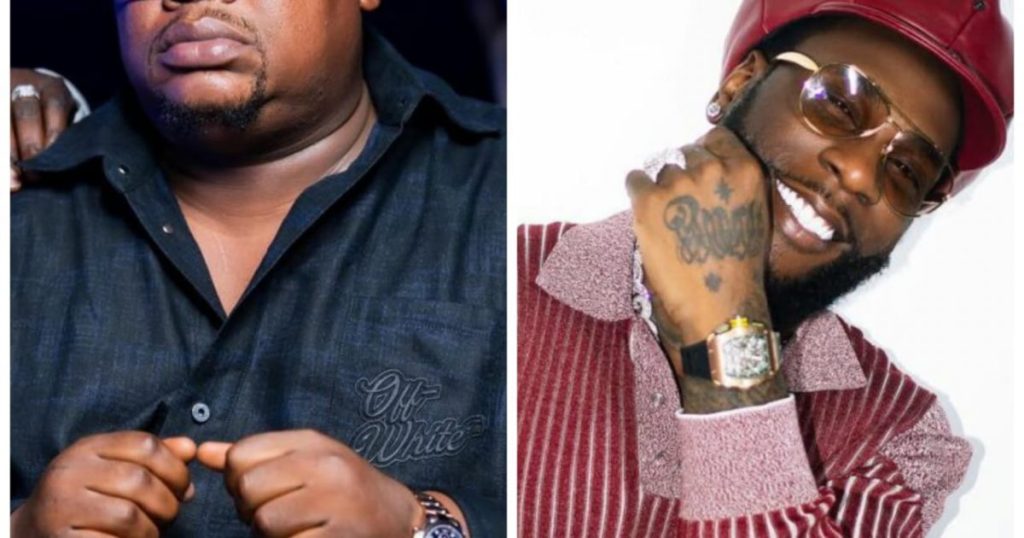The online feud between Nigerian celebrity barman Cubana Chief Priest, real name Pascal Okechukwu, and Afrobeats superstar Burna Boy, real name Damini Ogulu, erupted into a public spectacle, captivating social media audiences and sparking heated debates among fans. The conflict, seemingly rooted in personal differences and exacerbated by perceived allegiances to other artists, unfolded through a series of pointed Instagram posts, each escalating the tension and revealing underlying resentments.
The initial salvo was fired by Burna Boy, who posted a cryptic message referencing “Owerri Rick Ross,” a moniker widely interpreted as a dig at Cubana Chief Priest. Burna Boy’s post also included an accusation of illegality, alluding to the arrest of an associate and hinting at future consequences for the celebrity barman. The perceived target, Cubana Chief Priest, is known for his close relationship with singer Davido, a rival of Burna Boy, further fueling speculation that the post was a veiled attack motivated by pre-existing tensions and alliances within the music industry.
Cubana Chief Priest wasted no time in responding, firing back with accusations of his own. He mocked Burna Boy’s demeanor, suggesting that the artist’s Grammy win was fueled by external influences, and referred to him as “African Princess,” a derogatory term seemingly aimed at belittling Burna Boy. He further claimed to possess evidence of past interactions with the artist, including videos of Burna Boy performing at his birthday party for a meager sum, implying that Burna Boy’s current success was built on his, Cubana Chief Priest’s, patronage. This served to paint a picture of Burna Boy as an ungrateful beneficiary of his past generosity.
The conflict deepened as Cubana Chief Priest leveled further accusations, alleging that Burna Boy was indebted to luxury car dealers and jewelers in London. This claim seemed designed to tarnish Burna Boy’s image of wealth and success, suggesting that his lavish lifestyle was built on borrowed money. The public airing of these alleged debts was a significant escalation, moving the feud beyond personal jabs and into the realm of financial accusations.
Burna Boy responded swiftly to these allegations, denying any outstanding debts. He emphasized his practice of paying for his purchases upfront, often in cash, and challenged Cubana Chief Priest to provide proof of his claims. He further insinuated that Cubana Chief Priest’s own wealth was questionable, suggesting his cars were stolen and daring him to service them at official dealerships – a move that would purportedly reveal their illicit origins. The exchange became increasingly personal, with both parties resorting to insults and veiled threats.
The public nature of the feud allowed fans to actively participate, taking sides and adding fuel to the fire. Social media platforms buzzed with discussions, memes, and analyses of the ongoing drama. The feud provided a glimpse into the complex relationships and rivalries within the Nigerian entertainment industry, highlighting the volatile mix of ego, money, and influence that often drives such conflicts. The back-and-forth accusations and insults served as entertainment for many while also sparking conversations about the authenticity of online personas and the potential consequences of public disputes.
The feud between Cubana Chief Priest and Burna Boy exemplifies the power of social media in amplifying personal conflicts and transforming them into public spectacles. From cryptic messages to explicit accusations, the online platform served as a battleground for the two celebrities to air their grievances and attempt to damage each other’s reputation. The involvement of fans, taking sides and adding their own interpretations to the narrative, further intensified the drama and ensured that the feud remained a trending topic. The incident underscores the blurred lines between public image and private life in the age of social media, where even personal disputes can be broadcast to a vast audience, subject to scrutiny, and potentially have lasting consequences. The consequences of this feud may impact both individuals’ public perceptions and professional relationships, while also serving as a cautionary tale about the potential pitfalls of online conflict.














